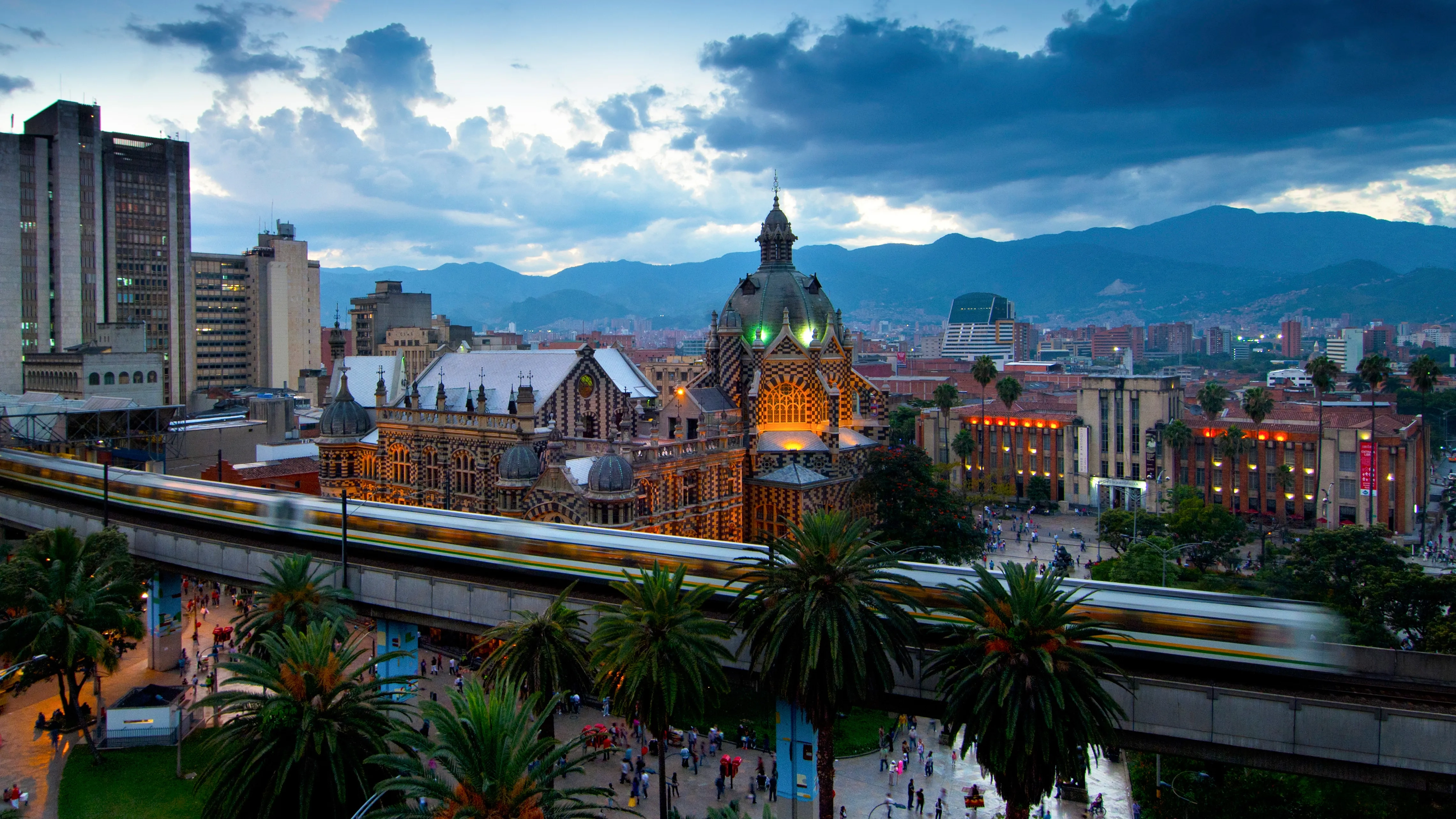1. Cost of Living:
Rent: The cost of rent can vary significantly depending on the city and neighborhood. In major cities like Bogotá and Medellín, you may find a range of housing options, from affordable apartments to more upscale residences.
Utilities: Basic utilities are generally reasonably priced.
Groceries: The cost of groceries is moderate, and fresh produce is widely available. Local markets can offer affordable options.
2. Healthcare: Access to medical services is generally good, especially in urban areas with well-equipped hospitals and clinics.
3. Transport: Cities have comprehensive public transportation systems, including buses and metro systems. Public transport is affordable and widely used.
4. Food: Colombian cuisine is diverse and flavorful, with a variety of regional dishes. Street food is popular and affordable. Eating out at restaurants can range from budget-friendly to upscale dining experiences.
5. Safety: Safety varies by region, and expatriates should be aware of local conditions. While Colombia has made significant progress in improving safety, it's essential to stay informed.
The average cost of living for a single person in Colombia could be around $800 to $1,500 per month. A breakdown of estimated monthly expenses:
- Rent: $300 - $700 (varies based on location and type of accommodation)
- Utilities (electricity, heating, cooling, water, garbage): $50 - $100
- Groceries: $150 - $300
- Transportation: $30 - $100 (public transportation or occasional taxi rides)
- Healthcare: $50 - $100 (health insurance and out-of-pocket expenses)
- Entertainment and dining out: $100 - $300
Pros of Living in Colombia:
- Cultural Richness: Colombia is known for its vibrant culture, diverse traditions, and rich history. Residents can enjoy a variety of festivals, music, dance, and art.
- Natural Beauty: Colombia boasts diverse landscapes, including lush rainforests, beautiful beaches, and high-altitude mountains. The country offers numerous opportunities for outdoor activities.
- Cost of Living: The cost of living in Colombia is generally lower than in many Western countries, making it an attractive destination for expatriates seeking affordable living.
- Warm and Welcoming People: Colombians are renowned for their warmth and friendliness. Expatriates often find the local population welcoming and open to cultural exchange.
- Expatriate Communities: Major cities have established expatriate communities, providing newcomers with support, social connections, and networking opportunities.
Cons of Living in Colombia:
- Safety Concerns: While safety has improved, certain regions may still have security concerns. It's essential to stay informed about local conditions and take necessary precautions.
- Infrastructure Challenges: Some areas may have infrastructure challenges, including road conditions and public transportation. This can impact daily life, particularly in rural regions.
- Bureaucracy: Dealing with bureaucratic processes can be time-consuming. Obtaining certain documents or navigating administrative procedures may require patience.
- Traffic Congestion: Major cities, like Bogotá and Medellín, may experience traffic congestion, impacting daily commutes and transportation.
- Natural Disasters: Colombia is prone to natural disasters such as earthquakes and occasional flooding. It's important to be aware of local risks and preparedness measures.
1. Bogotá: As the capital and largest city, Bogotá is a vibrant metropolis known for its cultural events, diverse dining options, and a growing expatriate community. It offers a mix of modern amenities and historical sites.
2. Medellín: Medellín boasts a pleasant climate and a reputation for innovation. The city has undergone significant urban development and is known for its public transportation system.
3. Cali: Cali is a lively city known for its passion for salsa dancing and music. It has a warm climate and a rich cultural scene, making it appealing for those who enjoy a dynamic and energetic atmosphere.
4. Cartagena: Located on the Caribbean coast, Cartagena is known for its well-preserved colonial architecture, beautiful beaches, and a lively atmosphere.
5. Barranquilla: Barranquilla is a major industrial and commercial hub on the Caribbean coast. The city is famous for its Carnival, one of the largest in the country, and offers a mix of cultural events and economic opportunities.
- Language Skills:
While English is spoken in urban areas, having a basic understanding of Spanish can greatly enhance your experience and facilitate daily interactions.
- Cultural Awareness:
Familiarize yourself with Colombian customs, traditions, and social norms. Being culturally aware will help you integrate better into the local community.
- Financial Preparation:
Ensure you have sufficient funds to cover initial expenses, including visa application fees, accommodation, and living costs until you establish a stable financial situation.
- Security Awareness:
Be aware of safety considerations in the area where you plan to live. While Colombia has improved in terms of security, it's essential to stay vigilant and follow local advice.
- Banking and Finances:
Open a local bank account and familiarize yourself with the banking system. This will facilitate financial transactions and make it easier to manage your finances in Colombia.






